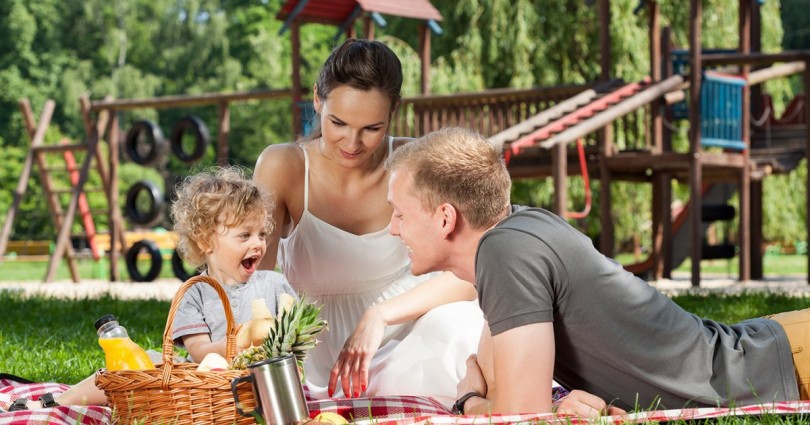10. Plan Breakfast
Keep easy breakfast items on hand to avoid slipping. A slice of leftover homemade pizza could do the trick, or an egg on toast could also be a good option, for example. Try a peanut butter banana smoothie, for you and the kids. Just blend 1 cup of milk or almond milk with a frozen banana, 2 tablespoons of peanut butter and a tspn of vanilla.

9. Pack the Occasional Lunch
Try a large vegetable and pasta salad that can be a eaten as a complete meal, even use it twice as a side at dinner, or to be easily be packed on a picnic. Even if they are just leftovers from dinner the night before, or a frozen meal they that can be reheated, your kids will be better nourished.

8. Redo Snacking
Keep healthy options available in the kitchen, but still try to maintain a pattern of meals and snacking, instead of allowing yourself and the kids graze all day. Put healthy snacks such as cubes of watermelon, grapes, cheese and yogurt at eye level in the fridge, so kids will choose them and fill up more, instead of grabbing sugary, starchy foods.

7. Involve the Entire Family
Take your kids grocery shopping with you, at least occasionally, so that they can brainstorm a master list of groceries. Some meals for the summer could include: barbecued burgers with fresh vegetables on whole grain buns, and grilled chicken and veggie kebabs.

6. Plan Healthy Outings
What might a healthy outing be? Perhaps it’s visiting a farm, berry picking, gardening, fishing or stopping at the local farmer’s market for fresh fruits and veggies. This is a better alternative to carnival food, which is symbolic of summer fun.

5. Eat Outside
It doesn’t matter how it’s done…a barbecue on the deck, or a picnic at the park, eating outside can be much healthier and relaxing than munching inside. The preparation and cleanup for food is done quickly, and once outside, the healthy idea of a game of Frisbee, or taking a walk around the neighborhood is likely to happen.

4. Minimize Sugar Intake
Whether it be an ice cream cone, popsicle, or another frozen treat, they are all laden with sugar. It wouldn’t be summer without some of these sugary treats, but it’s crucial to be mindful of portion sizes and frequency of consumption. Once in awhile is fine, but making it a regular thing isn’t.

3. Stay Hydrated
Try to always quench thirst with water before drinking anything else. Symptoms of poor hydration include lightheadedness, dizziness, cramps, fatigue, dark urine and lack of need to urinate often. For summer sports activities that take place in the heat, be extra mindful of hydration, and if the activity lasts more than an hour, dilute juice or drink a sports drink.

2. Healthy Snacks
Always make sure you have enough healthy snacks for the beach or a road trip. Make sure to use enough ice packs in order to keep it cold. Cut sandwiches in four pieces for ease while eating during travel, and to motivate yourself from avoiding fast-food places. Rolled sushi pieces make a great finger food. Bring chopped carrots, celery sticks, bell pepper strips, and any other vegetable you like to much on.

1. Don’t Eat Too Late at Night
The whole pattern of meals and snacks in conjunction with falling asleep immediately after can be problematic. Therefore, be careful not to consistently eat dinner at 9 p.m. or later, especially if going to bed shortly afterwards. Shoot for eating well-balanced meals that consist of lean protein, vegetables and whole grains, combined with healthy snacks every 3-4 hours throughout the day.


